September 26, 2018 •
Clean Missouri Amendment Will Appear on November Ballot
The Missouri Supreme Court declined to take on the Clean Missouri ballot initiative case, which means it will appear as an amendment on the ballot this November. The amendment focuses on ethics reform and state redistricting, and it was challenged […]
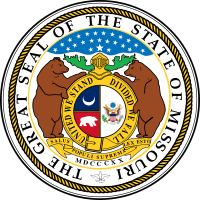 The Missouri Supreme Court declined to take on the Clean Missouri ballot initiative case, which means it will appear as an amendment on the ballot this November.
The Missouri Supreme Court declined to take on the Clean Missouri ballot initiative case, which means it will appear as an amendment on the ballot this November.
The amendment focuses on ethics reform and state redistricting, and it was challenged because it possibly violated a provision of the Missouri Constitution that limits the scope of initiative petitions and sought to mislead voters.
A trial court agreed, but an appellate court in Kansas City upheld Clean Missouri because all the proposed changes are included under the subject Legislature reform.
September 24, 2018 •
California Bans Cryptocurrency Campaign Contributions
On September 20, the Fair Political Practices Commission prohibited the use of cryptocurrency in political contributions in California. The FPPC stated the anonymity of these donations would make it difficult to discern who is attempting to influence elections. This is […]
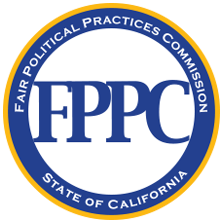 On September 20, the Fair Political Practices Commission prohibited the use of cryptocurrency in political contributions in California.
On September 20, the Fair Political Practices Commission prohibited the use of cryptocurrency in political contributions in California.
The FPPC stated the anonymity of these donations would make it difficult to discern who is attempting to influence elections.
This is contrary to the position the Federal Election Commission took in 2014, which said cryptocurrencies are in-kind property and federal candidates could accept them as a form of contribution under certain conditions.
September 24, 2018 •
North Carolina to Hold Special Session for Hurricane Recovery
This week, North Carolina Gov. Roy Cooper issued a call for a special session of the state’s legislature to address damage done by Hurricane Florence. Gov. Cooper intends to call lawmakers back to work on Tuesday, October 2, 2018, to […]
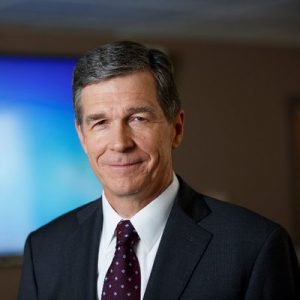 This week, North Carolina Gov. Roy Cooper issued a call for a special session of the state’s legislature to address damage done by Hurricane Florence.
This week, North Carolina Gov. Roy Cooper issued a call for a special session of the state’s legislature to address damage done by Hurricane Florence.
Gov. Cooper intends to call lawmakers back to work on Tuesday, October 2, 2018, to get state funding approved for recovery efforts.
An official proclamation for the special session has not yet been issued but it is expected in coming weeks.
This will be the third special session called to address hurricane damage in the state’s history.
September 21, 2018 •
News You Can Use – September 21, 2018
National: These State Lawmakers Are Running Unopposed, but Still Rake in Campaign Cash Center for Public Integrity – Sanya Mansoor, Liz Essley Whyte, and Joe Yerardi | Published: 9/19/2018 There are at least 26 legislative leaders in statehouses across America […]

National:
These State Lawmakers Are Running Unopposed, but Still Rake in Campaign Cash
Center for Public Integrity – Sanya Mansoor, Liz Essley Whyte, and Joe Yerardi | Published: 9/19/2018
There are at least 26 legislative leaders in statehouses across America who are collecting campaign donations despite running unopposed this year. The safe lawmakers represent an attractive prospect for lobbyists and power-seekers: the sure bet. Contributions to these influential politicians can buy face time and favor with those who set state legislative agendas, experts say. The money also compounds their power. Legislative leaders use their accounts to buy presents to thank supporters, for example, or give to fellow lawmakers’ campaigns to reward them for voting with their party.
Federal:
Foreign Lobbying Overhaul Loses Steam in Congress
Politico – Marianne Levine and Josh Gerstein | Published: 9/17/2018
Amid partisan clashes and pushback from foreign-owned companies, the push to strengthen the Foreign Agents Registration Act (FARA) appears to be going nowhere as multiple bills have stalled. Foreign companies with American subsidiaries feared the changes would force their lobbyists to register as foreign agents, which would require them to disclose every meeting and phone call they made on behalf of overseas clients rather than under the less-restrictive disclosure rules for domestic lobbyists. “There’s these very fierce efforts to maintain the status quo,” said U.S. Rep. Mike Johnson, one of the lawmakers pushing to overhaul FARA.
Manafort Plea Deal Casts New Scrutiny on Lobbyists He Recruited
WRAL – Kenneth Vogel (New York Times) | Published: 9/14/2018
Paul Manafort recruited the Podesta Group and Mercury Public Affairs to aide a pro-Russian nonprofit in Ukraine, an arrangement intended to obscure the identity of the ultimate beneficiary of the lobbying, Ukrainian President Viktor Yanukovych. Relying on the word of the Ukrainian group, the firms initially registered their representation under congressional lobbying disclosure rules. Now, that work, and the decision not to disclose it under the Foreign Agents Registration Act, has turned the Podesta Group and Mercury, along with Skadden, Arps, Slate, Meagher & Flom, into subjects of interest in a series of probes. The new evidence was included in updated charges filed against Manafort in connection with his guilty plea. The evidence Robert Mueller’s team unveiled could help prosecutors in New York build cases against the firms.
Political Nonprofits Must Now Name Many of Their Donors Under Federal Court Ruling after Supreme Court Declines to Intervene
Chicago Tribune – Michelle Ye Hee Lee and Robert Barnes (Washington Post) | Published: 9/18/2018
The U.S. Supreme Court denied a request from a conservative political group to temporarily block a lower court ruling which would force it to disclose its donors. The request for a stay had initially been entered by Chief Justice John Roberts after Crossroads GPS disputed an earlier ruling that invalidated an FEC regulation allowing donors to remain anonymous. In the order from the full court, the justices refused to further delay the U.S. District Court for the District of Columbia’s decision to invalidate the regulation. The original decision required “dark-money” groups that spend at least $250 in independent expenditures to report every donor who gave at least $200 in the past year.
Senate Candidates to Start Electronically Filing Campaign Finance Reports, Pending President Approval
Center for Responsive Politics – Kaitlin Washburn | Published: 9/19/2018
Federal lawmakers passed a bill that would require U.S. Senate candidates to file their campaign finance disclosures directly to the FEC, rather than on paper with the secretary of the Senate. The provision is part of a larger appropriations bill that now awaits President Trump’s signature. House of Representatives and presidential candidates have been electronically filing their disclosure reports since 2001. The Center for Public Integrity found numerous mistakes produced by the Senate’s archaic system. The investigation found errors in more than 5,900 candidate disclosures and were all traced back to the conversion of paper filings to electronic data.
Ted Cruz’s Campaign Marked a Fund-Raising Letter an Official ‘Summons.’ It Wasn’t Against the Rules.
WRAL – Liam Stack (New York Times) | Published: 9/17/2018
The FEC said U.S. Sen. Ted Cruz’s re-election campaign did not violate any regulations when it sent out a fundraising letter designed to look like a legal summons. “SUMMONS ENCLOSED –OPEN IMMEDIATELY,” is written across the front in capital letters. The envelope does state the letter is from a campaign and includes a return address for the Cruz campaign’s Houston post office box. FEC spokesperson Myles Martin said the relevant question was whether a mailing contains a disclaimer saying it came from a political campaign. Aside from that, Martin said, “the FEC’s regulations don’t speak to how candidates may choose to word particular solicitations to potential contributors.” Cruz is locked in an unexpectedly tight race against U.S. Rep. Beto O’Rourke.
From the States and Municipalities:
Georgia: Court Declines to End Paperless Voting in Georgia Before Midterms
Politico – Eric Geller | Published: 9/18/2018
U.S. District Court Judge Amy Totenberg ruled Georgia need not replace paperless voting machines before the midterm elections, dealing a blow to security activists even as the judge acknowledged the machines are not secure and continuing to use them may infringe on voters’ constitutional right to a free and fair election. Switching to paper at this late date, state and county officials argued, would throw the election into chaos and cause voter confusion. The case will now proceed and deal with the plaintiffs’ constitutional arguments, and Totenberg warned Secretary of State Brian Kemp that his concerns about a chaotic election s will “hold much less sway in the future.”
Illinois: U.S. Appeals Court Upholds Illinois Campaign Finance Limits
State Journal-Register (Associated Press) | Published: 9/13/2018
A federal appeals court upheld Illinois’ campaign contribution limits. The Seventh Circuit U.S. Court of Appeals ruled the caps set in a 2009 law do not violate First Amendment free-speech rights. Illinois Liberty PAC had argued limits on individuals’ contributions should not be lower than those for corporations or unions.
Missouri: In Latest Legal Twist, Ethics Reform Question Back on Missouri Ballot
St. Louis Post-Dispatch – Kurt Erickson | Published: 9/18/2018
A state appeals court put an ethics reform package back on the November ballot. The Missouri Western District Court of Appeals ruled that Amendment 1 can stay on the ballot pending future court decisions. The referendum asks whether voters want to tighten campaign contribution limits, ban lobbyist gifts, institute a two-year waiting period for lawmakers-turned-lobbyists, start a new redistricting system in 2020, and require lawmakers to adhere to the Sunshine Law.
Nevada: Las Vegas Judge Nullifies Results of Republican Election
Las Vegas Review-Journal – Ramona Giwargis | Published: 9/18/2018
Jason Burke defeated Mack Miller by 122 votes in the June 12 primary for a seat in the Nevada Assembly, but Clark County District Judge Jim Crockett signed an order that nullified the election, saying Burke did not file campaign finance reports on time. State law states an election may be contested if the winner was not eligible for office, illegal votes were cast, or valid votes were not counted. The secretary of state’s office said the failure to file campaign finance reports is not an automatic disqualifier.
New York: Watchdog’s Bark Silent for Cuomo
WRAL – Chris Bragg (Albany Times Union) | Published: 9/18/2018
When a sworn complaint is filed with New York Joint Commission on Public Ethics (JCOPE), the law requires the agency to send any subject of such an ethics complaint a letter outlining possible legal violations and giving them 15 days to respond. Sworn complaints have been submitted requesting that JCOPE launch investigations Joseph Percoco’s possible use of government resources while he was managing Gov. Andrew Cuomo’s 2014 campaign, as well as the governor’s potential knowledge of those activities. But the Cuomo administration and campaign have not received a 15-day letter from JCOPE. David Grandeau, the state’s former top lobbying official, said that means there is “now no doubt that JCOPE is not following the law.”
Pennsylvania: Pennsylvania’s Ban on Gambling Contributions Struck Down
PennLive.com – Marc Levy (Associated Press) | Published: 9/19/2018
U.S. District Court Judge Sylvia Rambo overturned Pennsylvania’s ban on political contributions from people involved in the gaming industry, ruling the law aimed at curbing the influence of casino interests was too broad. But the judge did not close the door on lawmakers reviving a similar prohibition that is narrower in scope and tailored to the purpose of fighting corruption. The U.S. Supreme Court, Rambo wrote, has ruled that preventing corruption, or the appearance of corruption, is the only appropriate reason to justify restrictions on political donations. The Pennsylvania Supreme Court threw out the ban in 2009, which initially outlawed large campaign contributions from key parties in the gaming industry. Lawmakers responded by banning all donations.
September 20, 2018 •
North Carolina Extends Due Date of September Report
The North Carolina State Board of Ethics (NCSBE) released a statement this week extending the due date of September lobbyist and principal monthly expense report. The report, originally due on September 14, 2018, will now be due on September 21, […]
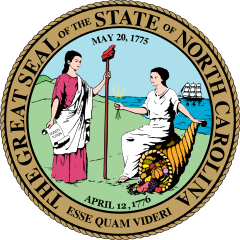 The North Carolina State Board of Ethics (NCSBE) released a statement this week extending the due date of September lobbyist and principal monthly expense report.
The North Carolina State Board of Ethics (NCSBE) released a statement this week extending the due date of September lobbyist and principal monthly expense report.
The report, originally due on September 14, 2018, will now be due on September 21, 2018 because of the effects of Hurricane Florence.
If the extended deadline still cannot be met because of the hurricane, contact the NCSBE.
The monthly report is due only if a lobbyist or principal incurred reportable expenditures in the month of August.
September 20, 2018 •
Federal Court Overturns PA Ban on Gambling Contributions
The U.S. District Court for the Middle District of Pennsylvania overturned the Commonwealth’s prohibition on political contributions from gaming-license applicants, licensees, and principals of licensees. Judge Sylvia Rambo concluded Section 1513 of the Gaming Act is an unconstitutional limit on […]
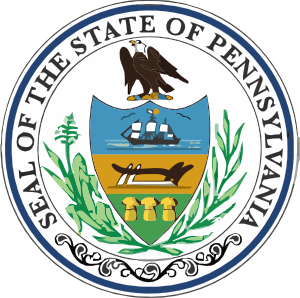 The U.S. District Court for the Middle District of Pennsylvania overturned the Commonwealth’s prohibition on political contributions from gaming-license applicants, licensees, and principals of licensees.
The U.S. District Court for the Middle District of Pennsylvania overturned the Commonwealth’s prohibition on political contributions from gaming-license applicants, licensees, and principals of licensees.
Judge Sylvia Rambo concluded Section 1513 of the Gaming Act is an unconstitutional limit on the First Amendment right of political association. Rambo stated the prohibition furthers a substantially important interest in preventing corruption, but is not closely drawn to achieve that interest.
The judgment opens the possibility for the Legislature to rewrite the statute to be narrowly tailored to achieve its purpose.
The Gaming Control Board is also reviewing the option to appeal the decision to the U.S. Third Circuit Court of Appeals.
September 20, 2018 •
Anne Arundel County Executive Introduces Ethics Reform Legislation
County Executive Steve Schuh proposed a bill to County Council to amend the county ethics provisions. Bill No. 80-18 increases late filing fee for lobbyists and employees, adds a revolving door provision, modifies certain definitions, requires employee ethics training, and […]
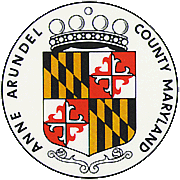 County Executive Steve Schuh proposed a bill to County Council to amend the county ethics provisions.
County Executive Steve Schuh proposed a bill to County Council to amend the county ethics provisions.
Bill No. 80-18 increases late filing fee for lobbyists and employees, adds a revolving door provision, modifies certain definitions, requires employee ethics training, and creates changes to comply with state ethics laws, among other provisions. The bill also updates who is required to file financial disclosure statements.
At the September 17 council meeting, an amendment passed to remove an exemption for free tickets and admission to certain events.
September 19, 2018 •
New Mexico School Districts Suffer from Local Election Act
Earlier this year, New Mexico passed the Local Election Act, which consolidates various nonpartisan local elections into one election in November of odd-numbered years. The law’s main goal is to save taxpayer money and increase voter turnout. However, local school […]
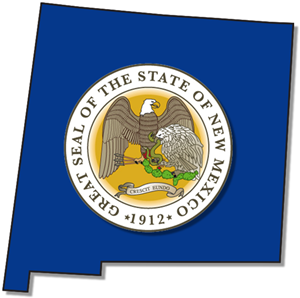 Earlier this year, New Mexico passed the Local Election Act, which consolidates various nonpartisan local elections into one election in November of odd-numbered years. The law’s main goal is to save taxpayer money and increase voter turnout.
Earlier this year, New Mexico passed the Local Election Act, which consolidates various nonpartisan local elections into one election in November of odd-numbered years. The law’s main goal is to save taxpayer money and increase voter turnout.
However, local school districts are suffering. Albuquerque Public Schools are projecting $1 million in administrative costs to facilitate their upcoming bond election, because the new law states special elections must be completed by mail.
The Santa Fe School Board voted unanimously to ask the New Mexico School Boards Association and the other 88 school districts to request lawmakers amend the law and restore the School Election Law, allowing regular elections to resume in February, when they previously were held, or special elections by mail if needed.
September 19, 2018 •
U.S. Court of Appeals Upholds IL Contribution Limits
The U.S. Seventh Circuit Court of Appeals upheld the Illinois Disclosure and Regulation of Campaign Contributions and Expenditures Act. In 2012, Liberty PAC filed a lawsuit claiming the Illinois campaign finance law violates the First Amendment by restricting contributions from […]
 The U.S. Seventh Circuit Court of Appeals upheld the Illinois Disclosure and Regulation of Campaign Contributions and Expenditures Act.
The U.S. Seventh Circuit Court of Appeals upheld the Illinois Disclosure and Regulation of Campaign Contributions and Expenditures Act.
In 2012, Liberty PAC filed a lawsuit claiming the Illinois campaign finance law violates the First Amendment by restricting contributions from individual donors, allowing political parties to make unlimited donations during a general election, creating a waiver provision that lifts spending limits, and allowing unlimited contributions from legislative caucus committees.
The U.S. District Court dismissed the first three claims at the pleadings stage due to precedent and conducted a bench trial on the fourth issue and ruled for the state.
The U.S. Circuit Court panel affirmed the lower court’s decision in its entirety and the plaintiffs intend to appeal the decision to the U.S. Supreme Court.
September 19, 2018 •
By-Election For Burnaby South (British Columbia) Seat in House of Commons To Be Announced on Future Date
Sometime before March 18, 2019, a by-election will be announced for the seat in the House of Commons representing Burnaby South in the province of British Columbia. On September 17, the Chief Electoral Officer of Canada, Stéphane Perrault, received official […]
 Sometime before March 18, 2019, a by-election will be announced for the seat in the House of Commons representing Burnaby South in the province of British Columbia.
Sometime before March 18, 2019, a by-election will be announced for the seat in the House of Commons representing Burnaby South in the province of British Columbia.
On September 17, the Chief Electoral Officer of Canada, Stéphane Perrault, received official notice from the Speaker of the House of Commons that the seat for Burnaby South (British Columbia) became vacant following the resignation of Kennedy Stewart, who resigned on September 14 in order to run for mayor of Vancouver.
Under the law, the by-election date must be announced between September 28, 2018, and March 18, 2019, and will signal the start of the by-election period.
According to Elections Canada, the earliest date the by-election can be held is November 5, 2018.
September 18, 2018 •
U.S. Supreme Court Allows Lower Court Ruling Concerning Campaign Finance Disclosure to Remain
On September 18, a ruling invalidating a federal campaign finance regulation limiting the disclosure requirements of organizations making independent expenditures was upheld by the United States Supreme Court. The Court overruled a stay issued on September 15 by Chief Justice John […]
 On September 18, a ruling invalidating a federal campaign finance regulation limiting the disclosure requirements of organizations making independent expenditures was upheld by the United States Supreme Court.
On September 18, a ruling invalidating a federal campaign finance regulation limiting the disclosure requirements of organizations making independent expenditures was upheld by the United States Supreme Court.
The Court overruled a stay issued on September 15 by Chief Justice John G. Roberts, Jr., which had blocked a lower federal district court’s order invalidating a Federal Election Commission (FEC) campaign finance disclosure regulation. There were no dissents issued with the order.
Robert’s stay was decided on Saturday after the U.S. Court of Appeals for the District of Columbia Circuit denied an emergency motion for the stay made earlier the same day. On August 3, a federal district court had ruled a campaign finance disclosure regulation followed for decades by the FEC failed to uphold disclosure requirements required by a federal statute. Chief Judge Beryl A. Howell of the United States District Court for The District of Columbia issued an order, in CREW v. FEC, vacating 11 C.F.R. §109.10(e)(1)(vi), but stayed the vacatur for 45 days to give time for the FEC to issue interim regulations comporting with the statutory disclosure requirements of 52 U.S.C. §30104(c). The FEC has not yet replaced the rule.
The case originated because of independent expenditures made in a 2012 Ohio senate race by the non-political social-welfare nonprofit Crossroads Grassroots Policy Strategies (Crossroads GPS), an affiliate of the American Crossroads Super PAC. Crossroads GPS did not report donors when reporting its independent expenditures, while it acknowledged receiving contributions over $200, arguing the donors did not donate funds directly tied to any specific reported expenditure, as the FEC interpreted 11 C.F.R. §109.10(e)(1)(vi) to require.
Non-political committees making independent expenditures over $250 in a calendar year must comply with disclosure obligations closely analogous to those imposed on political committees. The vacated regulation required the identification of each person who made a contribution in excess of $200 to the person filing a disclosure report, including for non-political 501(c)(4) non-profit entities making independent expenditures, if the contribution was made for the purpose of furthering the reported independent expenditure.
The district court found the regulation, as construed and applied by the FEC, did not require the disclosure of donors, absent the donor’s express agreement that the funds be used for the specific expenditures reported to the FEC, even though the donor may otherwise support and in fact contribute for the purpose of funding those expenditures.
The district court found the regulation impermissibly narrows the mandated disclosure in 52 U.S.C. §30104(c)(2)(C), which requires the identification of such donors contributing for the purpose of furthering the non-political committee’s own express advocacy for or against the election of a federal candidate, even when the donor has not expressly directed that the funds be used in the precise manner reported.
September 18, 2018 •
Oakland to Launch Campaign Finance App for November Election
The Oakland Public Ethics Commission and OpenOakland, a civic technology group, have jointly released a new version of their web tool, Open Disclosure, to track political contributions in Oakland elections. The corresponding app, to be released on September 25, will […]
 The Oakland Public Ethics Commission and OpenOakland, a civic technology group, have jointly released a new version of their web tool, Open Disclosure, to track political contributions in Oakland elections.
The Oakland Public Ethics Commission and OpenOakland, a civic technology group, have jointly released a new version of their web tool, Open Disclosure, to track political contributions in Oakland elections.
The corresponding app, to be released on September 25, will show the source and spending of campaign funds for both Oakland city candidates and ballot measure committees.
In addition to displaying sources of contributions, the new release will also include data on spending by independent expenditures.
September 18, 2018 •
Oklahoma Ethics Commission Adopts Rules Previously Rejected by the Legislature
The Oklahoma Ethics Commission adopted ethics rules for the second time this year. In February, the commission submitted its 2018 Promulgated Ethics Rules to the governor and both houses of the Legislature. Proposed changes included a revolving door provision prohibiting […]
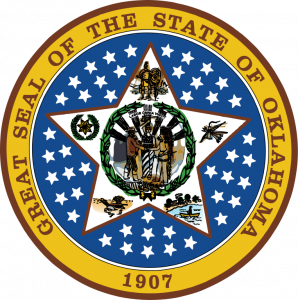 The Oklahoma Ethics Commission adopted ethics rules for the second time this year. In February, the commission submitted its 2018 Promulgated Ethics Rules to the governor and both houses of the Legislature.
The Oklahoma Ethics Commission adopted ethics rules for the second time this year. In February, the commission submitted its 2018 Promulgated Ethics Rules to the governor and both houses of the Legislature.
Proposed changes included a revolving door provision prohibiting elected state officers and chief administrative officers from lobbying for two years following their terms of office or service, new rules regarding the due dates of electronic filings, and revised reporting periods for candidate election reports and independent expenditure reports.
The Legislature rejected those rules during the 2018 session. Despite the rejection earlier this year, the commission adopted the rules again on September 14, 2018.
If the Legislature chooses not to reject the proposed rule changes again, all amendments will be effective upon adjournment sine die of the 2019 regular legislative session.
September 18, 2018 •
Sen. Sasse Introduces Five Federal Ethics Bills
On September 17, Sen. Ben Sasse introduced five federal ethics bills in the Senate, including Senate Bill 3454, the Congressional Revolving Door Ban Act, which would create a lifetime ban on members of Congress leaving office to become federal lobbyists. […]
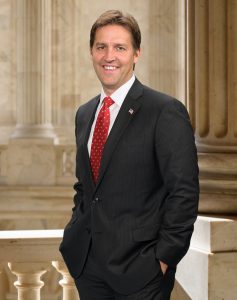 On September 17, Sen. Ben Sasse introduced five federal ethics bills in the Senate, including Senate Bill 3454, the Congressional Revolving Door Ban Act, which would create a lifetime ban on members of Congress leaving office to become federal lobbyists.
On September 17, Sen. Ben Sasse introduced five federal ethics bills in the Senate, including Senate Bill 3454, the Congressional Revolving Door Ban Act, which would create a lifetime ban on members of Congress leaving office to become federal lobbyists.
Senate Bill 3452, the Cabinet Service Integrity Act, prohibits cabinet members and their immediate family from soliciting contributions from a government of a foreign country, a foreign political party, or any entity owned or controlled by a government of a foreign country or foreign political party.
Senate Bill 3451, the Congressional Anti-Corruption Act, prohibits members of Congress from buying or selling individual securities while in office.
Senate Bill 3453, the Congressional Workplace Misconduct Accountability Act, creates a public database of U.S. Congressional human resources settlements and increases the personal financial liability for members of congress.
Senate Bill 3450, the Presidential Tax Transparency Act, requires a presidential and vice-presidential candidates’ tax returns be disclosed by the Internal Revenue Service.
Sasse said he intends the legislation to be “big and disruptive and uncomfortable for Washington, D.C.”, according to his press release.
State and Federal Communications, Inc. provides research and consulting services for government relations professionals on lobbying laws, procurement lobbying laws, political contribution laws in the United States and Canada. Learn more by visiting stateandfed.com.

